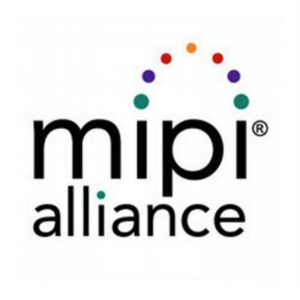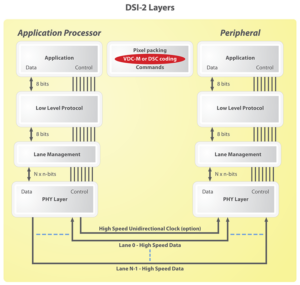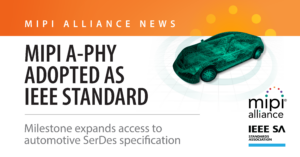The MIPI Alliance announced that global OEMs and other automotive supply chain vendors have joined the ecosystem designing products based on the MIPI A-PHY SerDes specification for high-speed image sensor and display connectivity. These companies recognize the technology’s resilience and its ability to support the bandwidth and performance requirements of next-generation ADAS and ADS applications. In […]
mipialliance
MIPI A-PHY v2.0 reaches 32 Gbps downlink speed for automotive applications
The MIPI Alliance has released MIPI A-PHY v2.0, an updated version of its automotive high-speed asymmetric serializer-deserializer (SerDes) physical-layer interface. This new version increases the maximum downlink data rate to 32 Gigabits per second (Gbps) on a single channel, doubling the previous capacity. It also introduces an additional uplink gear supporting up to 1.6 Gbps, an eight-fold increase in […]
MIPI UniPro v2.0 doubles peak data rate
The MIPI Alliance announced a significant update to its versatile, application-agnostic MIPI UniPro transport layer for chip-to-chip/interprocessor communication (IPC) applications in traditional and modular device architectures. Version 2.0 of the specification adds key features to double the data rate while offering greater throughput and reduced latency particularly required by today’s most demanding flash storage applications. First introduced in […]
MIPI a-PHY release double data rate from 16 to 32 Gpbs
The MIPI Alliance announced the release of MIPI A-PHY v1.1, the next version of the automotive serializer-deserializer (SerDes) physical-layer interface. Version 1.1 doubles the maximum available downlink data rate from 16 Gigabits per second (Gbps) to 32 Gbps and includes other enhancements to help automotive OEMs and their suppliers implement high-performance image sensors and displays in next-generation […]
Updated MIPI I3C basic simplifies designs, boosts speed
The MIPI Alliance announced the first update to its publicly available, royalty-free, MIPI I3C Basic specification. Version 1.1.1 dramatically enhances the speed and flexibility of I3C Basic, simplifying the development of innovative designs for products such as smartphones, wearables, and systems in automobiles and server environments. As the successor to the legacy I2C interface, MIPI I3C/I3C Basic provides a […]
MIPI update improves mobile-display user experience
The MIPI Alliance announced the next generation of its widely implemented MIPI Display Serial Interface 2 (MIPI DSI-2) specification. MIPI DSI-2 v2.0 delivers significant improvements to the user experience while boosting power savings across far-reaching application spaces such as mobile, automotive, and gaming. When coupled with the most recent versions of the MIPI C- and D-PHY physical interfaces, it also offers twice the bandwidth over the previous […]
MIPI A-PHY v1.0 spec is now part of IEEE standard
The MIPI Alliance announced the adoption of the MIPI A-PHY v1.0 specification as an IEEE standard. Published as IEEE 2977-2021, IEEE Standard for Adoption of MIPI Alliance Specification for A-PHY Interface (A-PHY) Version 1.0, A-PHY is the first asymmetric, industry-standard, long-reach, serializer-deserializer (SerDes) physical layer interface for automotive applications. The process was initiated in October 2020 […]
MIPI Debug for I3C v1.0 allows for efficient debug and test
The MIPI Alliance announced the public availability of MIPI Debug for I3C v1.0, a flexible and scalable debug and test specification for systems that enable 5G, the Internet of Things (IoT), automotive, and other applications. This new specification, built on the MIPI I3C v1.1 (and MIPI I3C Basic v1.0) utility and control bus, allows system designers to efficiently and […]
MIPI v3.0 enables more rapid and dynamic configuration changes for RF front-end subsystems
The MIPI Alliance, an international organization that develops interface specifications for mobile and mobile-influenced industries, today announced the release of MIPI RF Front End Control Interface (MIPI RFFE) v3.0. The latest version of the world’s de facto standard interface for control of radio frequency (RF) front-end (FE) subsystems, MIPI RFFE v3.0 is designed to deliver the tighter timing […]
MIPI A-PHY spec underway for ADS, ADAS and surround sensor applications
The MIPI Alliance has mapped a course to address the automotive industry’s needs for high-speed data interface specifications. With development of the MIPI A-PHY physical layer specification already underway to meet 12-24 gigabits per second (Gbps), requirements gathering has begun to support higher speeds including over 48 Gbps for display and other use cases. When complete, […]







